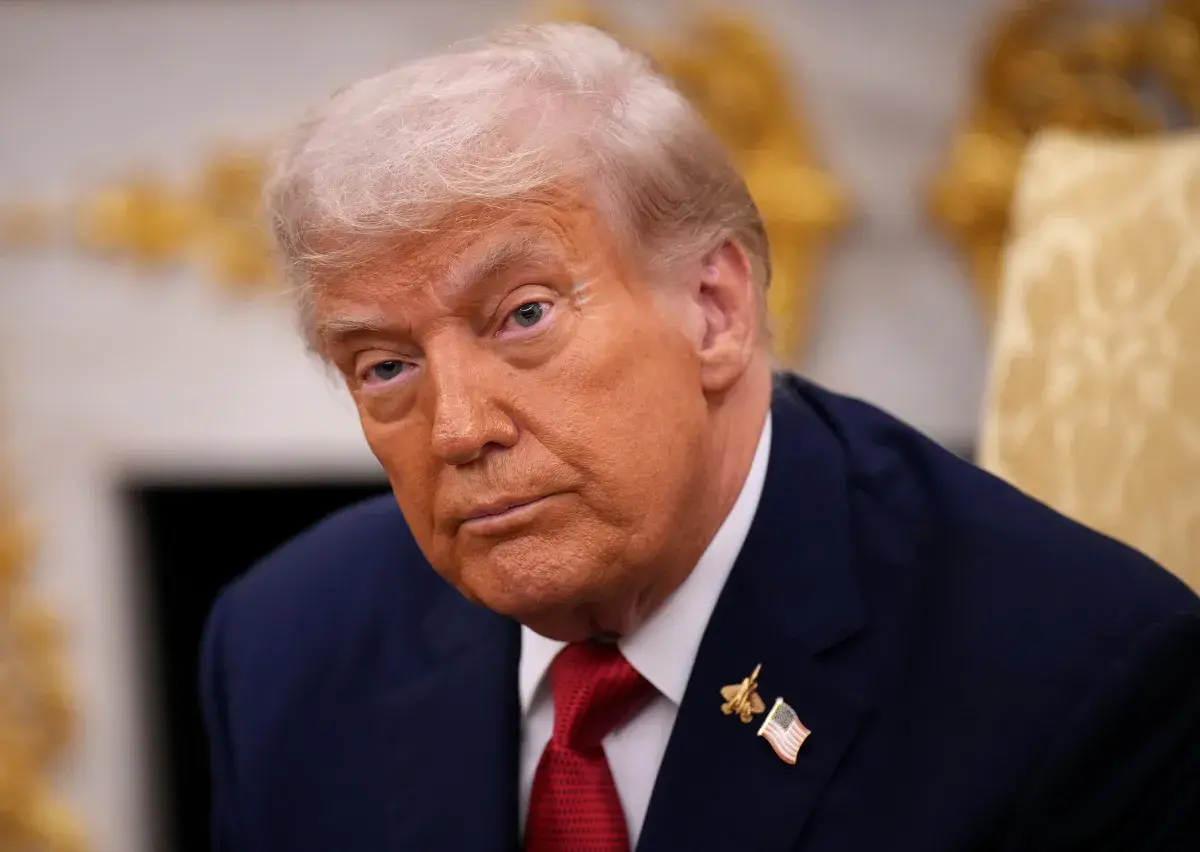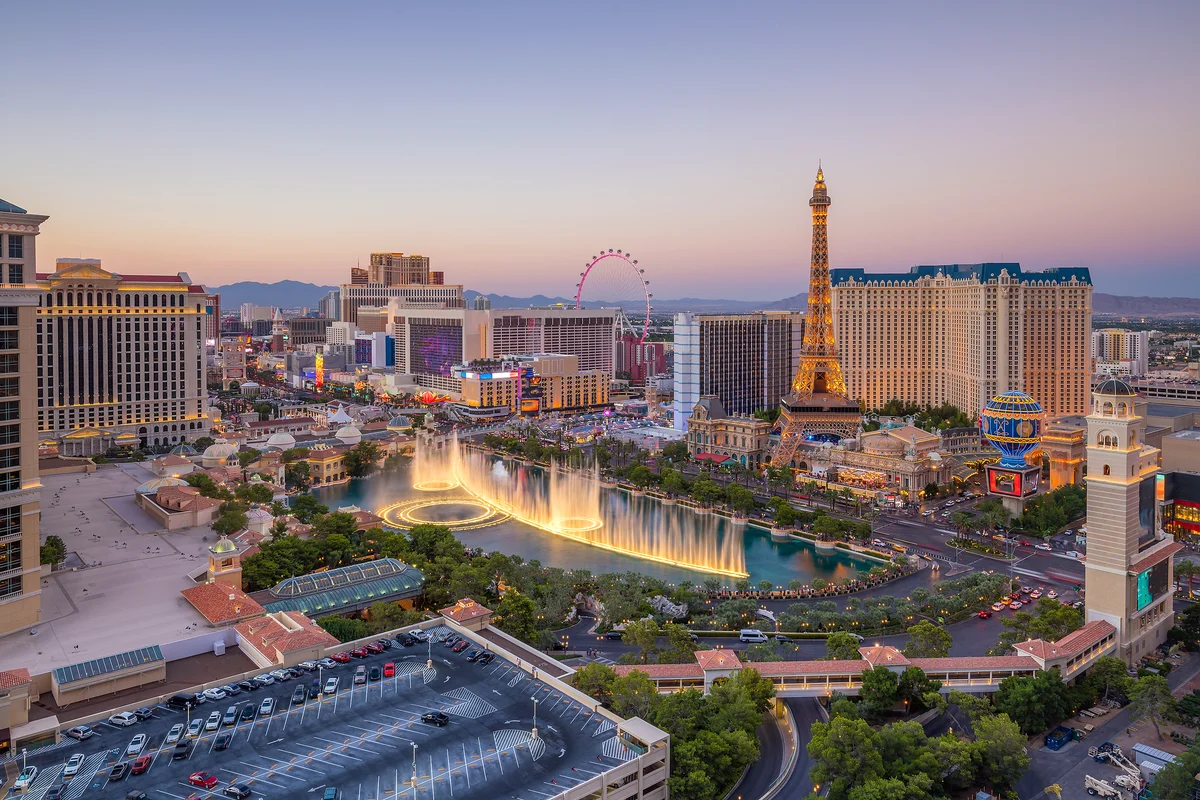
President Donald Trump’s has once again called for a tariff on films made outside of the U.S., potentially creating difficulties for studios that have announced plans to shift more of their productions overseas.
On Monday, Trump posted on Truth Social that other nations had “stolen” America’s movie industry like “candy from a baby.” To solve this “long time, never-ending problem,” the president said he would be imposing a “100 percent tariff on any and all movies that are made outside of the United States.”
The White House has not responded to Newsweek’s request for comment.
Why It Matters
Rising domestic production costs, alongside the generous tax incentives and cheaper labor overseas, have driven an increasing number of studios to relocate their projects outside of the U.S.
Undoing this trend and revitalizing the American film industry has been a focus of Trump’s second term. As well as announcing a similar tariff back in May—while lamenting Hollywood’s “very fast death”—the president has appointed actors Jon Voight, Mel Gibson and Sylvester Stallone as his “special envoys” to the industry in the hopes of inaugurating another “Golden Age of Hollywood.”
Filmmakers and industry experts are largely in agreement that a duty on an intangible article like a movie would be difficult or impossible to implement. But should the administration find a way—through tariffs or another mechanism—of penalizing productions that take place overseas, companies like Disney that have recently unveiled plans to invest in foreign productions could be significantly impacted.
What To Know
Although the U.S. remains the epicenter of global film production, a significant number of big-budget projects have shifted abroad in recent years. According to a report from ProdPro, an intelligence platform that tracks industry trends, production spending in the U.S. fell by 26 percent between 2022 and 2024, even as countries like Australia, the United Kingdom and Canada saw gains.
Experts who spoke to Newsweek believe halting this exodus is crucial for the future of the American film industry, but consider tariffs an impractical solution, as modern films are increasingly international co-productions which involve a blend of domestic and overseas shoots, as well as globally located animation and post-production work.
Entertainment attorney Jonathan Handel said Trump’s proposal “makes as little sense today as it did months ago when he first floated it” in May, but that it was nevertheless “likely to create uncertainty and negative economic impacts on all of the U.S. studios and streamers.”
Tom Nunan, founder of the independent L.A.-based production company Bull’s Eye Entertainment, also considers the idea strange, “because overseas production is a ‘service’ not a ‘product’—and tariffs are imposed on products that non-U. S. companies seek to export to the U.S.”
A more feasible and effective remedy to the Hollywood exodus, both told Newsweek, would be a national tax rebate or subsidy program for studios that choose to shoot at home.
This has already been adopted by California in an effort to revive its own film sector. This year, Governor Gavin Newsom doubled the state’s Film and Television Tax Credit program—from $330 million to $750 million—and said he would be willing to work with Trump on a similar initiative nationwide.
When approached for comment on Monday, the governor’s office referred Newsweek to a statement from Newsom in which he warned that a film tariff could “cause irreparable damage to the U.S. film industry” and called the announcement “100 percent stupid.”
David Hancock, chief media and entertainment analyst at the global research and advisory firm Omdia, told Newsweek that Trump’s announcement did not mean much at the moment, given the scant details on how a movie tariff would be implemented. However, he added that should the administration begin penalizing overseas shoots, that “will be felt by U.S producers.”
Among the major studios that could be affected are Disney, which last year announced plans to invest more than $5 billion in productions across the U.K. and Europe over the next five years.
The company’s vast intellectual property portfolio includes Star Wars and Marvel, and many of its recent and upcoming productions have been filmed abroad. Much of The Fantastic Four: First Steps was shot at Pinewood Studios in England, which will also host production for Avengers: Doomsday—the most significant installment in the Marvel Cinematic Universe since 2019’s Endgame.
Newsweek contacted Disney via email on Monday for comment.
What People Are Saying
Donald Trump wrote on Truth Social on Monday: “Our movie making business has been stolen from the United States of America, by other Countries, just like stealing ‘candy from a baby.’ California, with its weak and incompetent Governor, has been particularly hard hit! Therefore, in order to solve this long time, never-ending problem, I will be imposing a 100% Tariff on any and all movies that are made outside of the United States. Thank you for your attention to this matter. MAKE AMERICA GREAT AGAIN! President DJT.”
What Happens Next?
The administration has not yet provided any further specifics on the movie tariffs beyond Trump’s announcement.
Hancock of Omdia noted that Disney is not the only studio committing to more overseas productions, and that many may be affected depending on whether and how the tariffs are implemented.
Read Newsweek’s full conversation with film producer Tom Nunan below:
What do you make of this announcement?
Trump’s desire to seek a tariff imposition on U.S. shot productions made abroad is odd, because overseas production is a “service” not a “product”—and tariffs are imposed on products that non-U. S. companies seek to export to the U.S. The films and TV shows that are shot abroad, are U.S.- owned “products” and as such, they’re not technically subject to tariffs, per se.
While the potential implementation is unclear, what sort of impact could this have on the movie industry in the U. S.?
My guess is that Trump is trying to encourage more U.S.-based film and episodic production to figure out ways to keep film and episodic production in America versus abroad, and by announcing these so-called tariffs, he’s signaling to the American studios and streamers that he’s sick of seeing so much content made overseas. The best way for him to encourage more American-based productions would be to create rebates and incentives that could be applied on a federal level, that could perhaps match American state-based rebate and incentives programs, which would reward American studios and streamers who choose to make content stateside.
What impact could this have on Disney, who last year committed $5 billion to overseas productions?
Again, I don’t think tariffs can be applied to services, so I doubt there will be an impact on any studio or streamer, as it’s not technically feasible for the FTC or others to try and impose such a levy. That said, Trump is making it clear that he wants everyone to work harder to make things at home—but the burden is on the states and the federal government. Trump just needs to find the budget and incentives to compel studios to stay and work in the U.S. Right now, it’s simply too attractive to ignore the rebates and incentives available abroad, no matter the budget—large or small.
Why might Trump have made this announcement now?
I’m not sure about the timing, but I think I speak for most people who work in entertainment when I say that we wish it was more affordable to shoot in the states, versus elsewhere. Proposed tariffs aren’t the path toward getting studios and streamers to stay here—better rebates and incentives would make it more feasible, nothing more, nothing less.



